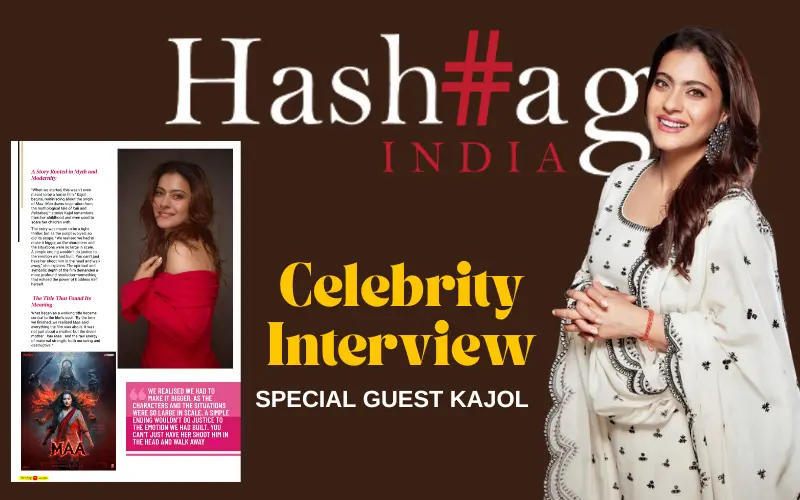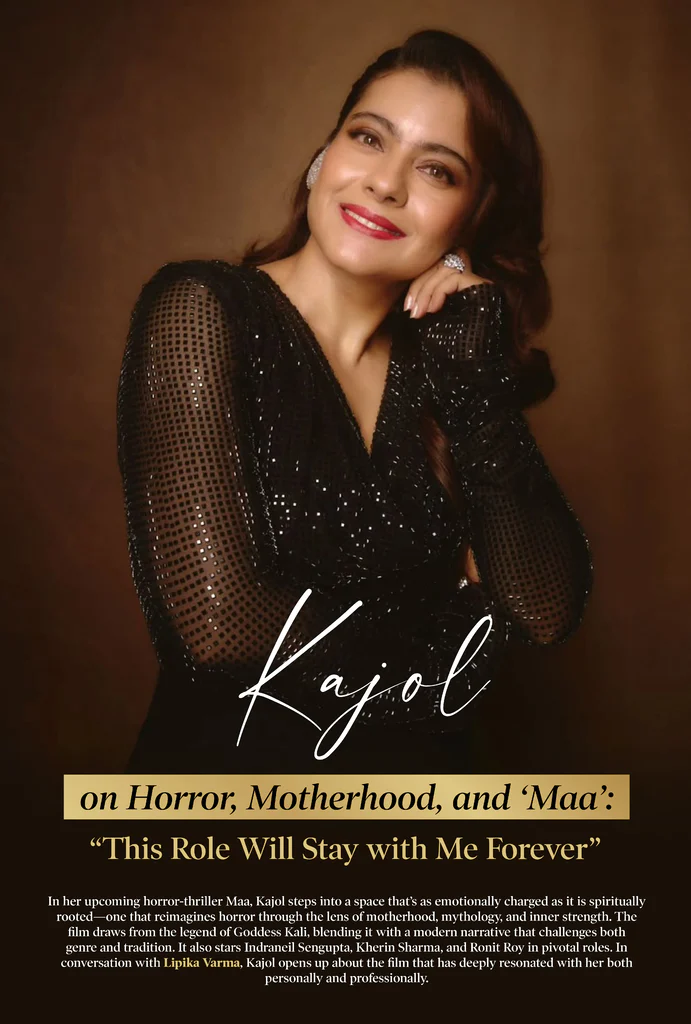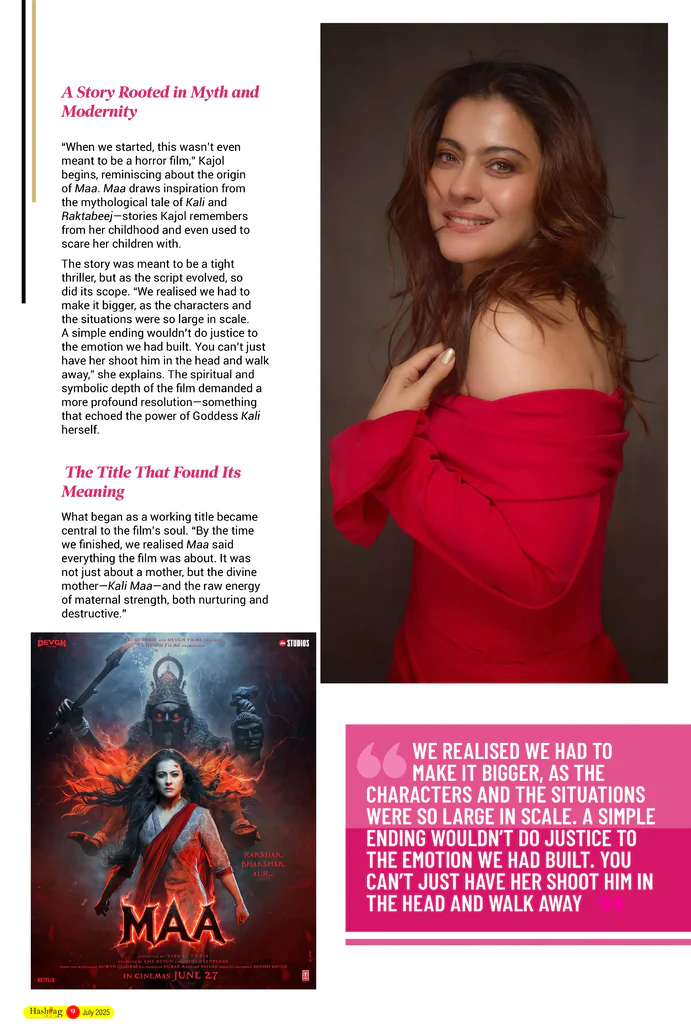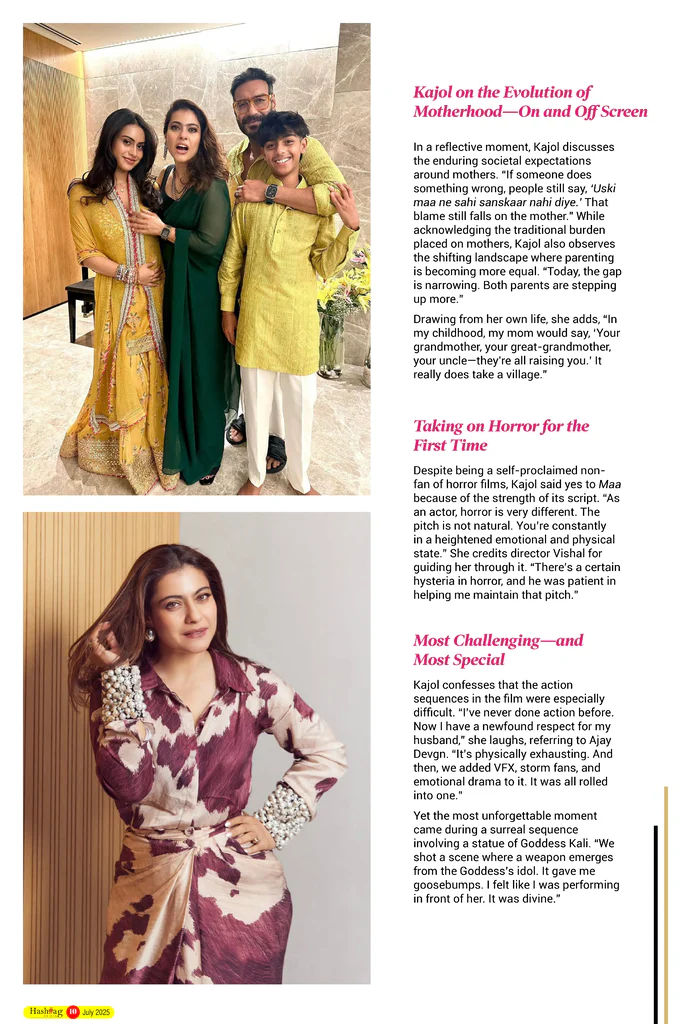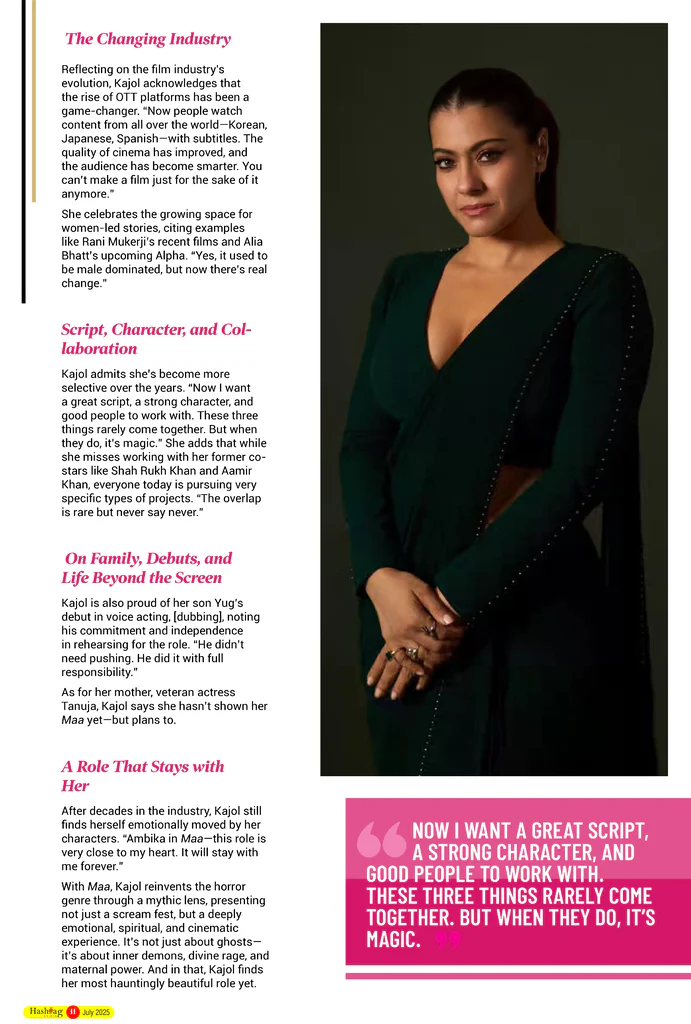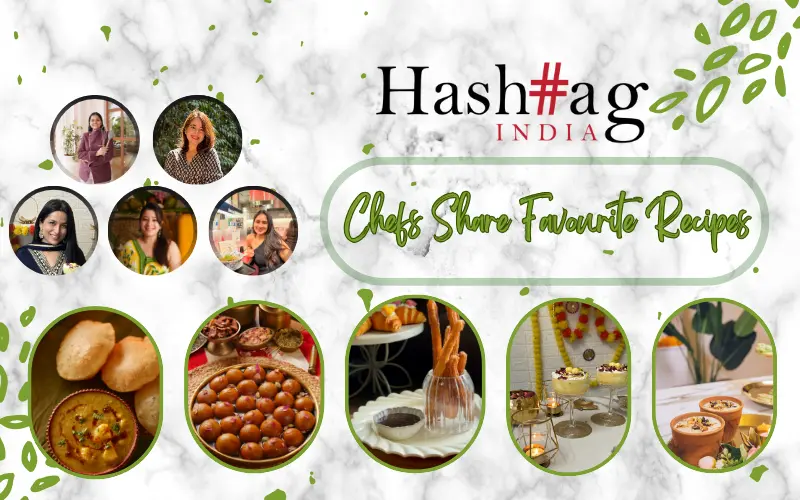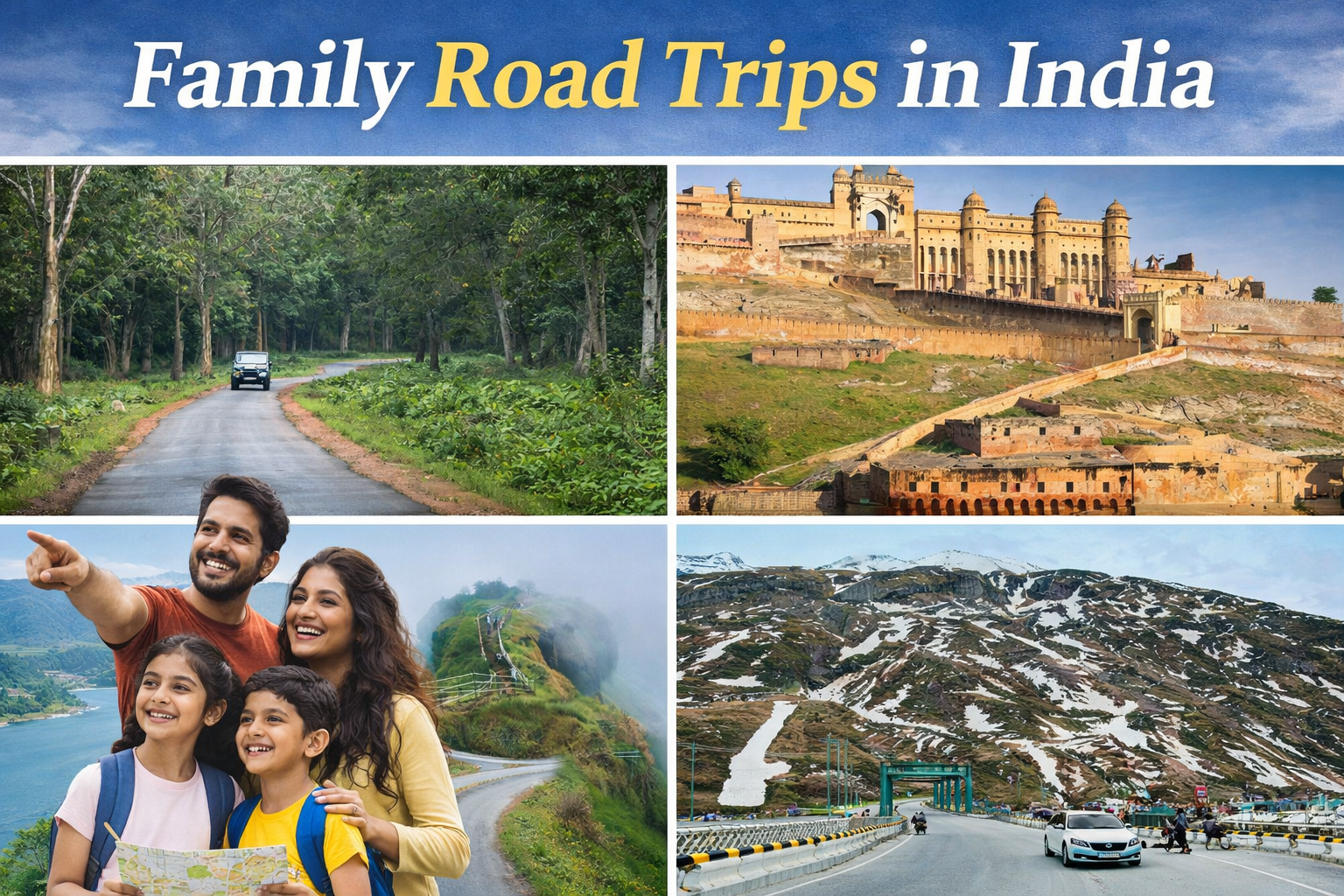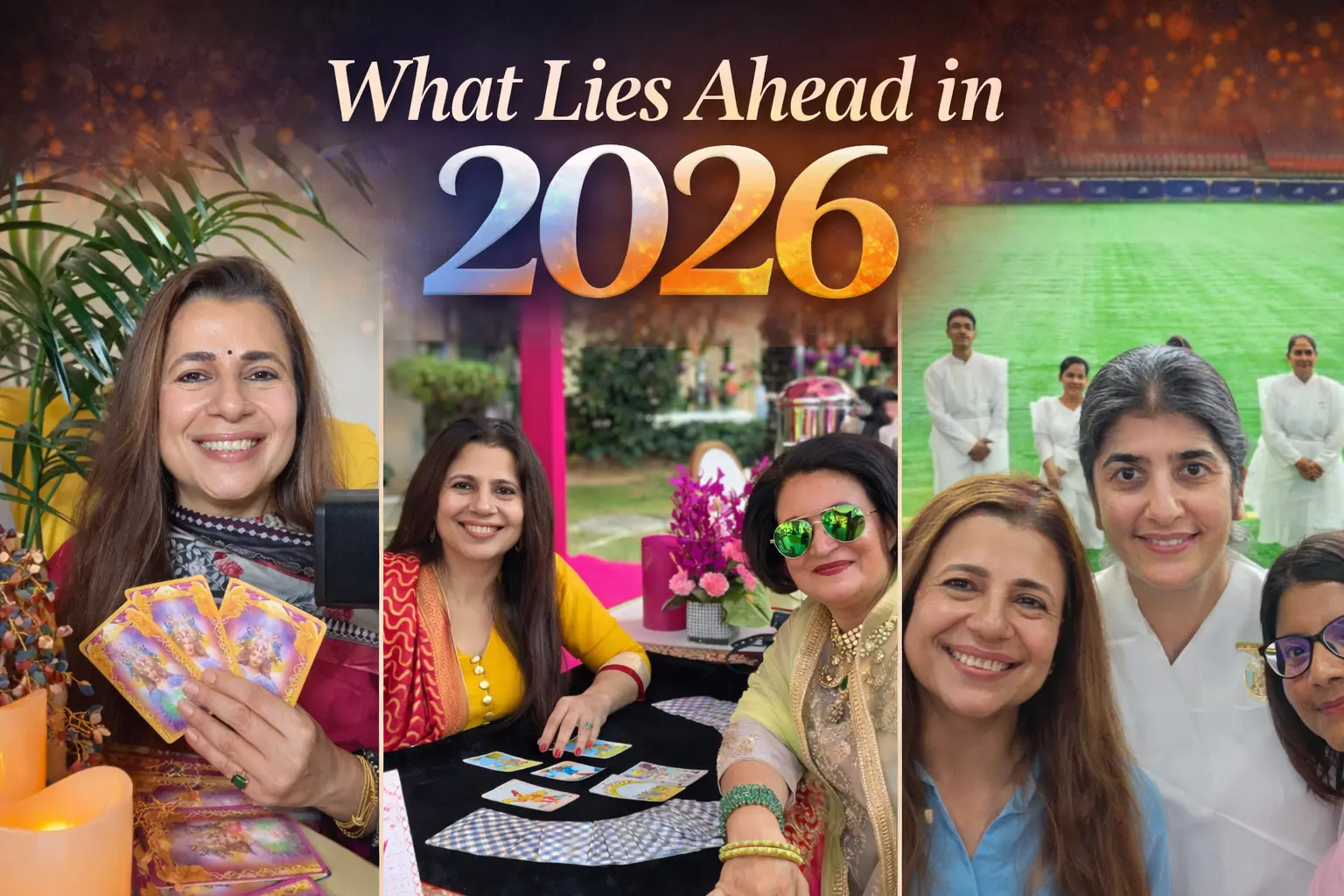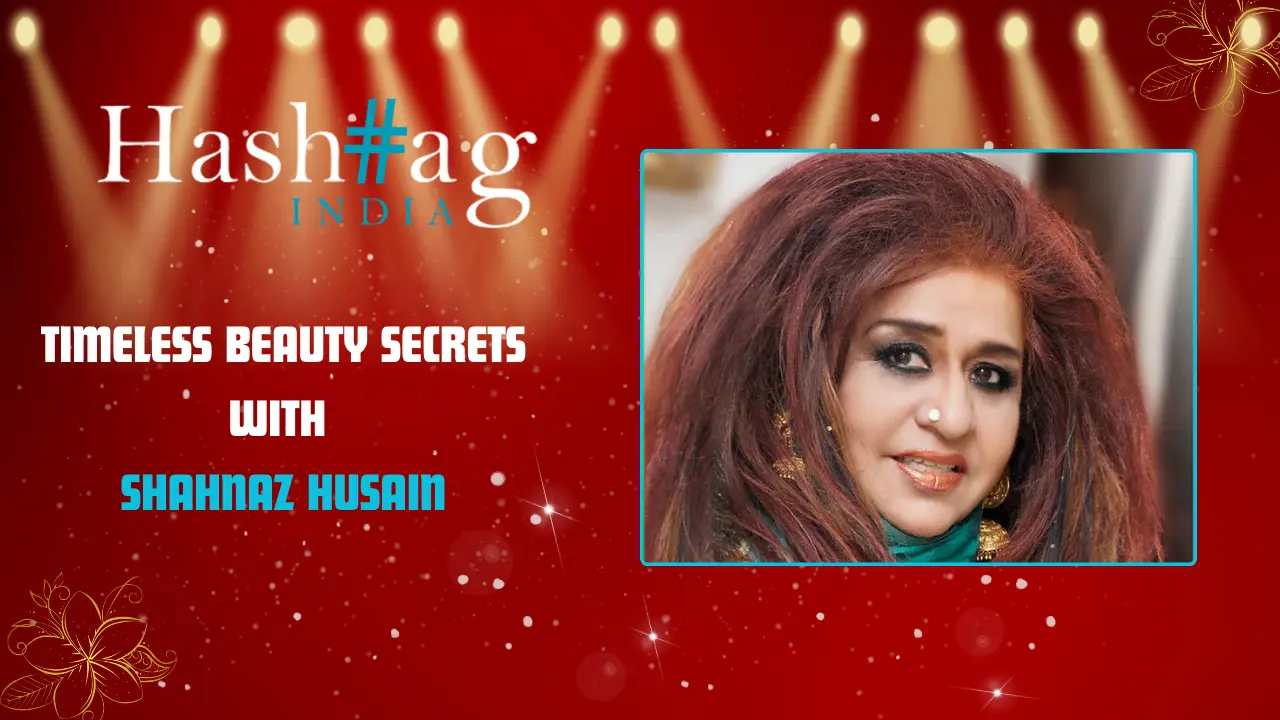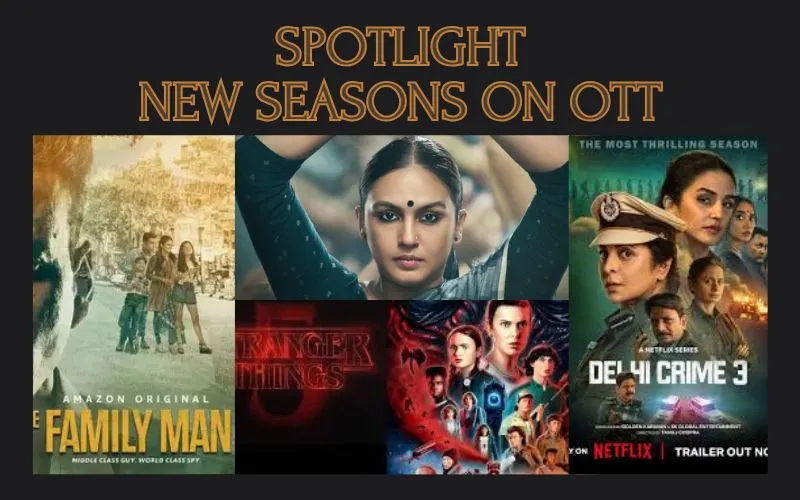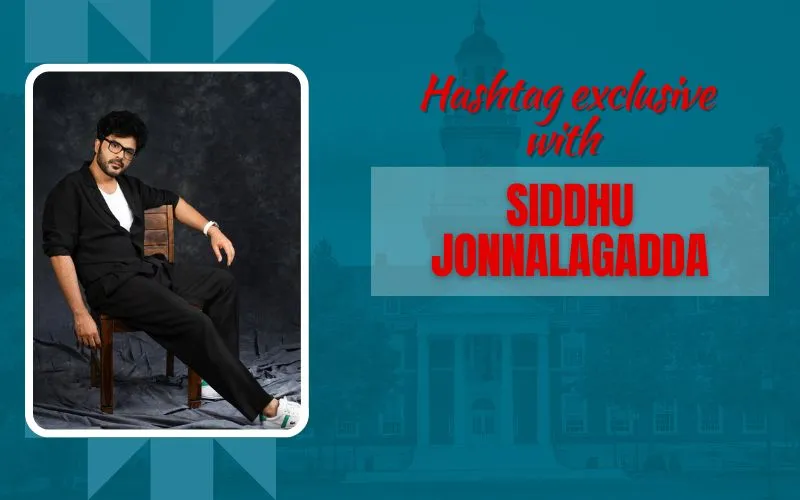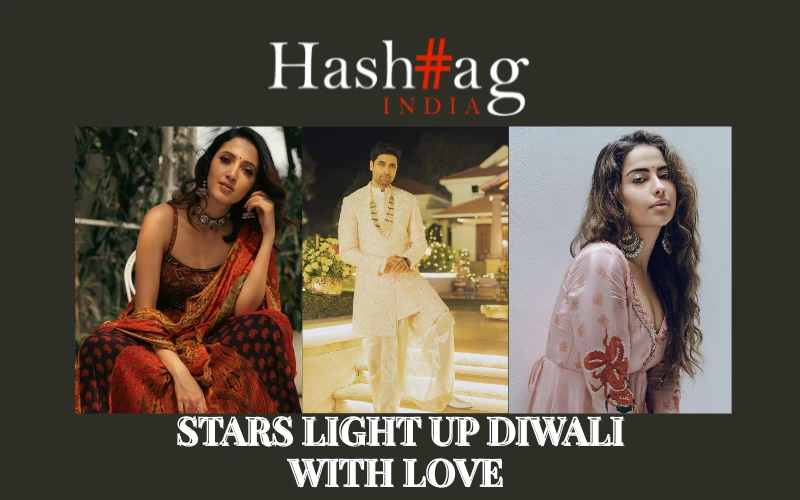In her upcoming horror-thriller Maa, Kajol steps into a space that’s as emotionally charged as it is spiritually rooted one that reimagines horror through the lens of motherhood, mythology, and inner strength. The film draws from the legend of Goddess Kali, blending it with a modern narrative that challenges both genre and tradition. It also stars Indraneil Sengupta, Kherin Sharma, and Ronit Roy in pivotal roles. In conversation with LIPOKAVARMA, Kajol opens up about the film that has deeply resonated with her both personally and professionally.
A Story Rooted in Myth and Modernity
“When we started, this wasn’t even meant to be a horror film,” Kajol begins, reminiscing about the origin of Maa. Maa draws inspiration from the mythological tale of Kali and Raktabeej stories Kajol remembers from her childhood and even used to scare her children with.
The story was meant to be a tight thriller, but as the script evolved, so did its scope. “We realised we had to make it bigger, as the characters and the situations were so large in scale. A simple ending wouldn’t do justice to the emotion we had built. You can’t just have her shoot him in the head and walk away,” she explains. The spiritual and symbolic depth of the film demanded a more profound resolution something that echoed the power of Goddess Kali herself.
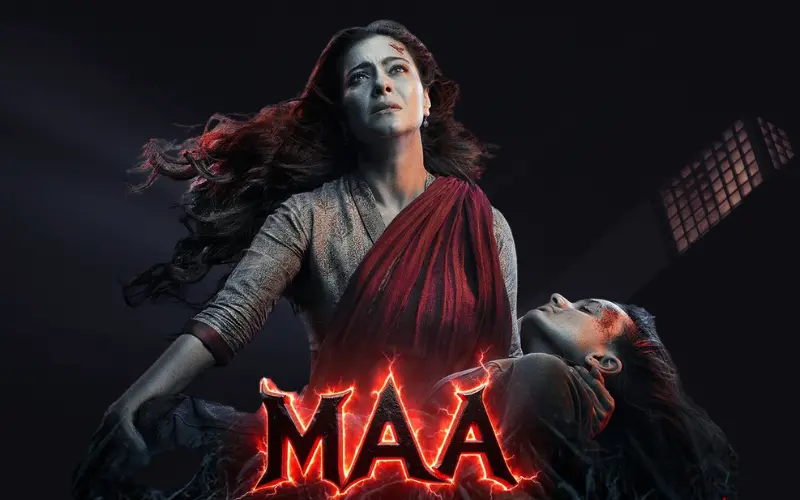
The Title That Found Its Meaning
What began as a working title became central to the film’s soul. “By the time we finished, we realised Maa said everything the film was about. It was not just about a mother, but the divine mother—Kali Maa—and the raw energy of maternal strength, both nurturing and destructive.”
Kajol on the Evolution of Motherhood On and Off Screen
In a reflective moment, Kajol discusses the enduring societal expectations around mothers. “If someone does something wrong, people still say, ‘Uski maa ne sahi sanskaar nahi diye.’ That blame still falls on the mother.” While acknowledging the traditional burden placed on mothers, Kajol also observes the shifting landscape where parenting is becoming more equal. “Today, the gap is narrowing. Both parents are stepping up more.”
Drawing from her own life, she adds, “In my childhood, my mom would say, ‘Your grandmother, your great-grandmother, your uncle they’re all raising you.’ It really does take a village.”
Taking on Horror for the First Time
Despite being a self-proclaimed non-fan of horror films, Kajol said yes to Maa because of the strength of its script. “As an actor, horror is very different. The pitch is not natural. You’re constantly in a heightened emotional and physical state.” She credits director Vishal for guiding her through it. “There’s a certain hysteria in horror, and he was patient in helping me maintain that pitch.”
Most Challenging and Most Special
Kajol confesses that the action sequences in the film were especially difficult. “I’ve never done action before. Now I have a newfound respect for my husband,” she laughs, referring to Ajay Devgn. “It’s physically exhausting. And then, we added VFX, storm fans, and emotional drama to it. It was all rolled into one.”
Yet the most unforgettable moment came during a surreal sequence involving a statue of Goddess Kali. “We shot a scene where a weapon emerges from the Goddess’s idol. It gave me goosebumps. I felt like I was performing in front of her. It was divine.”
The Changing Industry
Reflecting on the film industry’s evolution, Kajol acknowledges that the rise of OTT platforms has been a game-changer. “Now people watch content from all over the world Korean, Japanese, Spanish with subtitles. The quality of cinema has improved, and the audience has become smarter. You can’t make a film just for the sake of it anymore.” She celebrates the growing space for women-led stories, citing examples like Rani Mukerji’s recent films and Alia Bhatt’s upcoming Alpha. “Yes, it used to be male dominated, but now there’s real change.”
Script, Character, and Collaboration
Kajol admits she’s become more selective over the years. “Now I want a great script, a strong character, and good people to work with. These three things rarely come together. But when they do, it’s magic.” She adds that while she misses working with her former co-stars like Shah Rukh Khan and Aamir Khan, everyone today is pursuing very specific types of projects. “The overlap is rare but never say never.”
On Family, Debuts, and Life Beyond the Screen
Kajol is also proud of her son Yug’s debut in voice acting, [dubbing], noting his commitment and independence in rehearsing for the role. “He didn’t need pushing. He did it with full responsibility.”
As for her mother, veteran actress Tanuja, Kajol says she hasn’t shown her Maa yet but plans to.
A Role That Stays with Her
After decades in the industry, Kajol still finds herself emotionally moved by her characters. “Ambika in Maa this role is very close to my heart. It will stay with me forever.” With Maa, Kajol reinvents the horror genre through a mythic lens, presenting not just a scream fest, but a deeply emotional, spiritual, and cinematic experience. It’s not just about ghosts it’s about inner demons, divine rage, and maternal power. And in that, Kajol finds her most hauntingly beautiful role yet.

